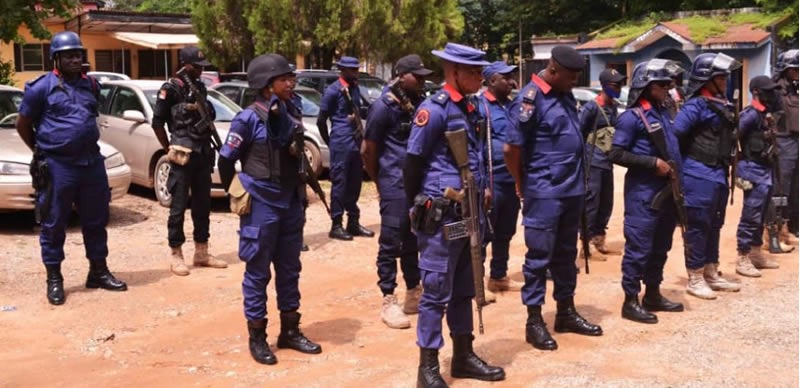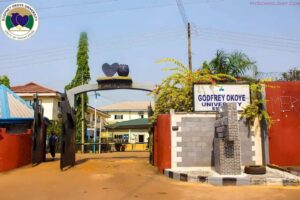Safe School Initiative Repels Over 100 Attacks on Schools in Six Months

The Safe School Initiative, a collaborative program between the federal government, states, and international development partners, has recorded a remarkable success in protecting educational institutions across the country. In the past six months, the initiative has successfully repelled over 100 attempted attacks on schools, ensuring the safety of students, teachers, and educational facilities.
Established in 2014, the Safe School Initiative aims to promote safe and secure learning environments for children and teachers in crisis-affected areas. The program involves various stakeholders, including the Nigerian military, police, and local vigilante groups, working together to prevent attacks on schools and respond swiftly to any threats.
Increased Security Measures In response to the surge in school attacks by non-state armed groups, the Safe School Initiative has intensified its security measures. These include the deployment of armed personnel to provide physical protection, installation of security infrastructure like fences and surveillance systems, and the establishment of emergency response protocols.
According to the initiative’s coordinator, Brig. Gen. Mohammed Sani, the success in repelling attacks can be attributed to improved intelligence gathering, community engagement, and collaboration with security agencies. “We have adopted a proactive approach, closely monitoring potential threats and taking preemptive action to prevent attacks,” Sani stated.
Attacks on Education The attacks on schools in Nigeria have been a major concern, with non-state armed groups targeting educational institutions for various reasons, including abductions for ransom, recruitment of child soldiers, and ideological opposition to Western education. These attacks have disrupted the education of millions of children, particularly in the northeastern and northwestern regions of the country.
The Safe School Initiative’s efforts have been instrumental in ensuring that learning can continue uninterrupted in many areas. However, the program faces significant challenges, including limited resources, vast geographical areas to cover, and the persistent threat of attacks by well-organized and heavily armed groups.
Community Involvement To address these challenges, the Safe School Initiative has prioritized community involvement and sensitization. Local communities are being empowered to take ownership of the program and contribute to the protection of their schools. This includes the formation of community-based vigilante groups, training on emergency response procedures, and the establishment of early warning systems.
International Support The Safe School Initiative has garnered significant international support, with various development partners providing technical assistance, funding, and capacity-building initiatives. The United Nations Children’s Fund (UNICEF), the Global Partnership for Education, and the Education in Emergencies Working Group Nigeria are among the key partners supporting the program.
Despite the progress made, the Safe School Initiative acknowledges that much more needs to be done to ensure the safety and continuity of education for all children in Nigeria. Continued collaboration between stakeholders, increased funding, and a sustained commitment to addressing the root causes of insecurity are crucial for the long-term success of the program.
He said, “Foiled attempts (on schools) are more than 100. Mentioning where they happened can create panic situations. The fear of insecurity is worse than the security itself. About 20 million children are already out of school not just because of the economy but because of attacks on education.”
Abodunrin said the majority of attacks were repelled in the North-East, North-West, and North Central regions during the year under review.
He added that an NSCDC officer was shot during a gunfight while preventing a mass abduction of students in Benue State.
“Generally speaking, the North-East, North-West and North-Central states are mostly affected. Just recently in Benue, a personnel of the NSCDC was shot in the crossfire to prevent mass abduction. He is still recuperating. Perpetrators are encouraged by the economic gains of ransom payments,” the commander said.
A security expert, Chidi Omeje, commended the operatives of the Safe School Initiative, saying, however, that the repelled attacks showed that schools in the country were prone to attacks.
He said, “The foiled attack is much because they see it as an easy target. They see it as one particular thing that could give them a high yield. They know the uproar and concern that such abductions would generate would be nationwide and that the government would be left with no option but to pay ransom.
“It also fits into the anti-intellectual drive of those bandits and terrorists. Kudos to the operatives of the initiative. They need to do more because this shows that our schools are still prone to attacks. If you are an armed robber, you would not want to target the CBN because you won’t succeed.”




